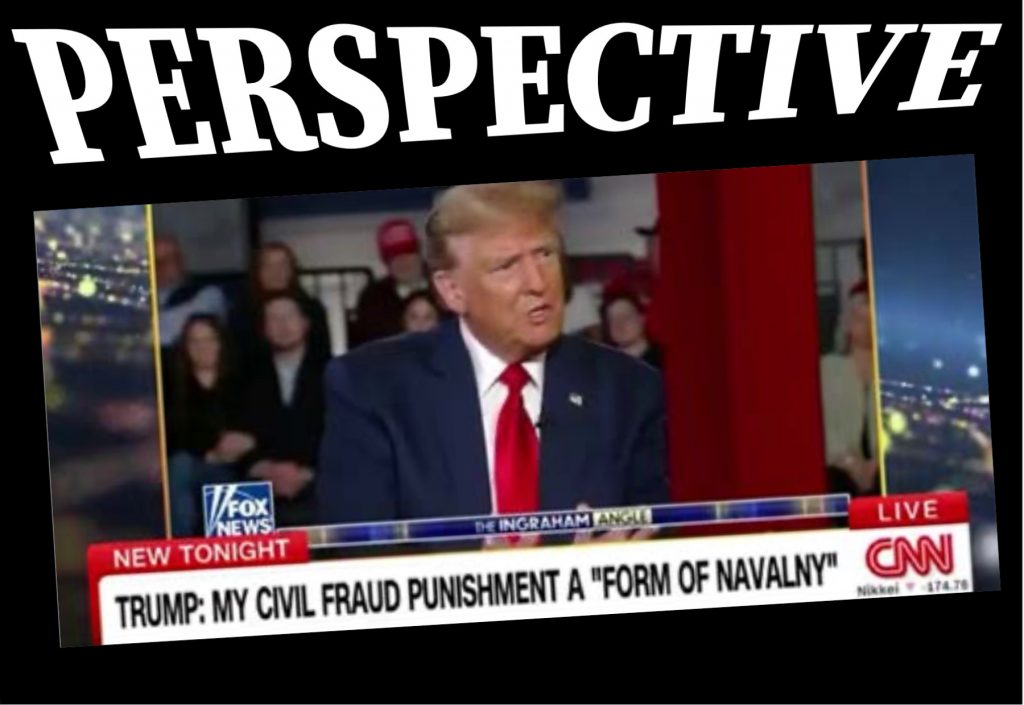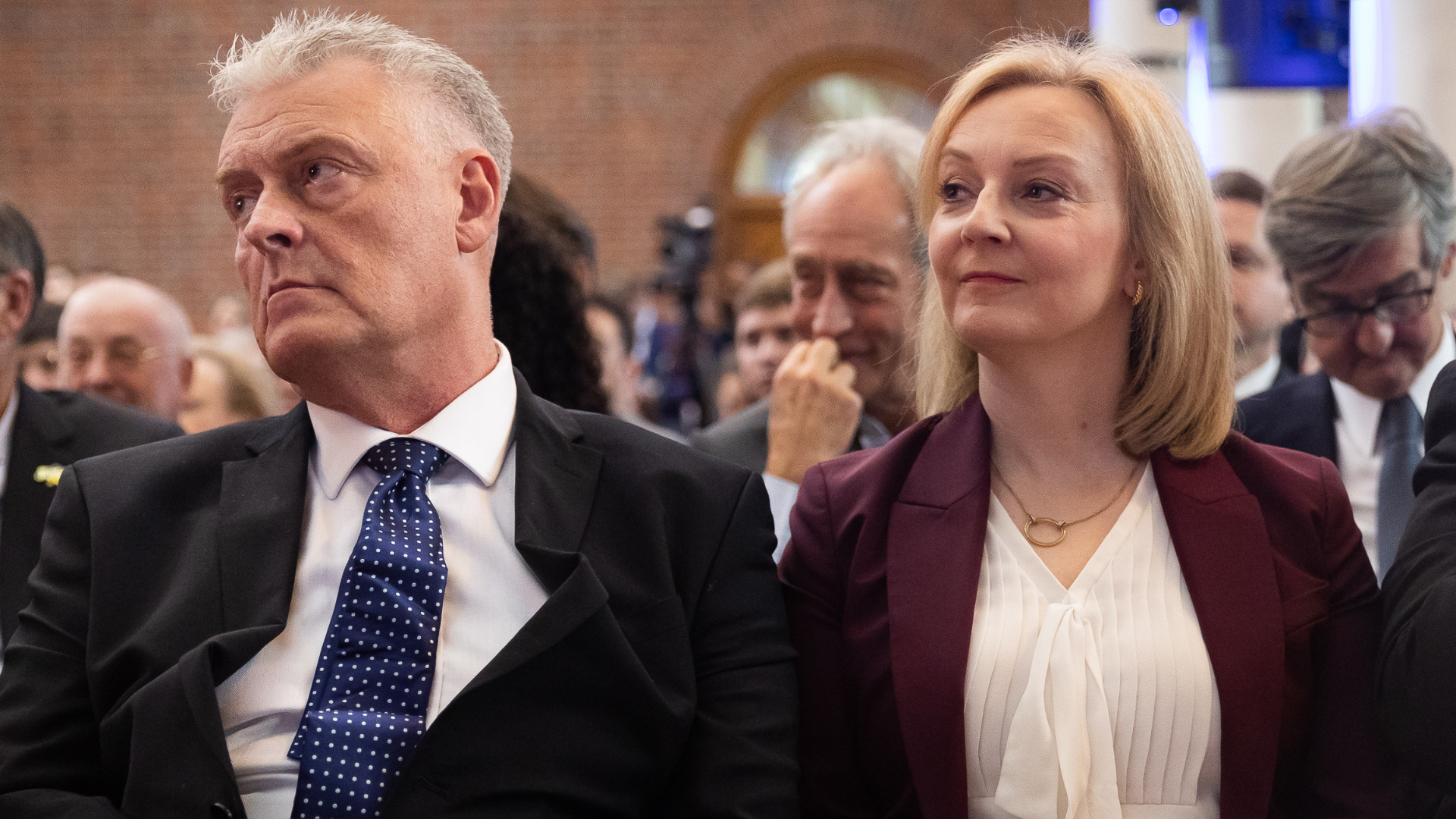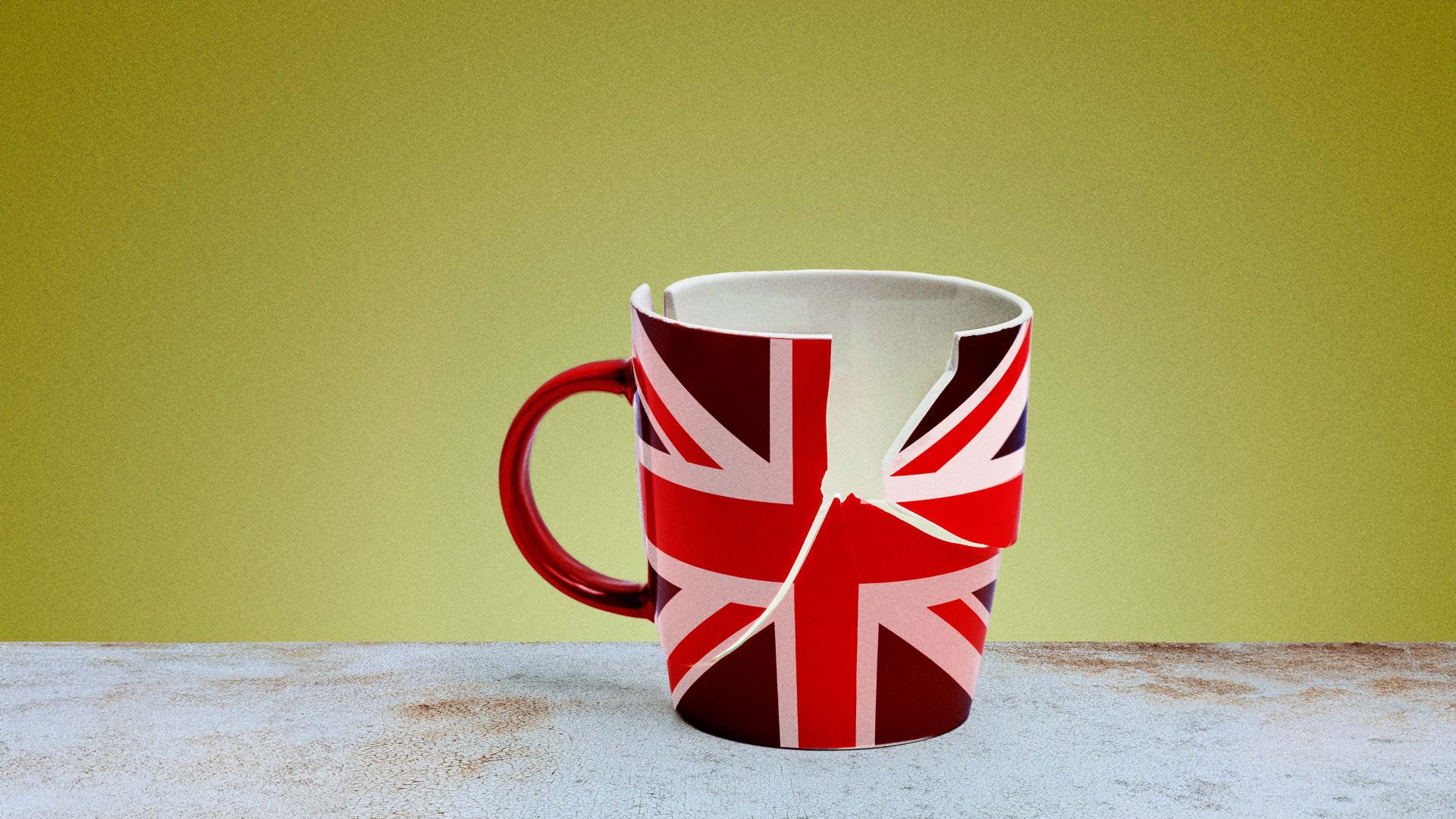Oliver Dowden, no one’s intellectual heavy-hitter, trotted out the current tired excuse for racism (ditto homophobia, misogyny, antisemitism, anti-LGBTQ+ etc) that is now the norm in our no-consequences political system. Lee Anderson’s comments were, he said, a “poor choice of words”.
Is the “poor choice of words” bin getting rather full when we consider that Suella Braverman has also made similar comments to Anderson and was also the one who said homelessness was a lifestyle choice?
Liz Truss is currently in the US, where she used her words to praise the proven sex offender and fraudster Donald Trump, yet stayed quiet while our own UK white supremacist Tommy Robinson was praised.
One cannot help thinking it’s not poor choice of words that is the problem but, as Patience Wheatcroft wrote in TNE #377, a poor choice of MPs.
Amanda Baker
Edinburgh, Scotland
As always, Patience Wheatcroft, hits a number of nails squarely on the head in “MPs deserve better, but we deserve better MPs” (TNE #377). So many aspects of our parliament need to change.
People talk about the role of MP being a “job”, but it isn’t currently. You are an elected representative, hence you are paid an “allowance” not a salary… if you were salaried, the proceeds from books you write and other income would be the property of parliament. It should be made clear that being an MP is a full-time job that leaves no room for hosting TV shows, writing regular newspaper columns or sitting on boards, etc.
The other key issue that needs changing is office arrangements. Many are the front desk for the political party, emblazoned in party colours, yet paid for by parliamentary allowances. Such a facility should be a government office, working for the constituents, to which the MP would be expected to pay a regular visit. It should not be a mini-business of the MP for their time in office.
Peter Tyzack
Severn Beach, Gloucestershire
Two suggestions for Patience Wheatcroft: one, significantly reduce the number of MPs and use the salaries saved to boost the salaries of those remaining.
Two, allow local councils to raise more of their revenue, which should stimulate voters’ attention to their councils and thus breed better councillors sensitive to the needs of their electorates. Some could graduate to be a better class of MP.
Norman Harris
Croydon, Greater London
We can’t drive a car without passing theory and practice tests. Why not a theory and practice course to be completed, irrespective of previous qualifications, before a candidate can stand? The theory might include the ethics, philosophy and practice of democracy. The practice element might be made up of supervised placements in such settings as local government, business, the Commons and a ministerial department.
The Victorian oath of allegiance should be modernised so that MPs swear to always vote according to their conscience as their constituents’ representative. All communications between Whips and MPs should be on the record. The aim would be to put the government in such a position that it had to persuade supporters by argument rather than by coercion.
Peter Badham
Chichester, Sussex
Bring it on
The Tories are “sleepwalking towards oblivion” and “heading for an extinction-level event” (James Ball, TNE #337)? Here’s hoping!
Sally Ann Harris
Via Facebook
I agreed with every word of James Ball’s piece on the lack of reality in Westminster. What is really remarkable to me is that with the Conservatives heading towards an apocalypse and 20-plus points down in the polls, none of the big newspapers – the Mail, Sun, Times or Telegraph – have abandoned them, or even abandoned Rishi Sunak. Do they realise how out of step with the public they are? Are they actually finished?
Lauren Ross
I sympathise with Rishi Sunak. I have been in my job for 16 months and have achieved nothing of note either.
Rebecca Chaplin
James Ball’s prediction of a Labour landslide is pie in the sky. I don’t think TNE realises how disliked Starmer is among Labour voters.
Brian Carpenter
Skill stretch
Re: Marie Le Conte’s “The trouble with Kemi Badenoch” (TNE #377). The business secretary sounds like an expert in stretching the truth. Surely, this must be the perfect skill set for her to take over the top Tory post?
Alison Biden
A safe bet
Like Alastair Campbell (Diary, TNE #377) I have Taylor Swift-related reasons for being grateful to Donald Trump’s Maga base. Being vaguely interested in American football, I followed the 2023 NFL season through the internet and saw reports that Swift, who I had never heard of before, was dating one of the Kansas City Chiefs players, Travis Kelce.
When Kansas City got to the Super Bowl, some of the Maga base started claiming that the game would be rigged by the deep state so that the Chiefs won. This, the theory went, would give Taylor Swift even more publicity, making her endorsement of Joe Biden – which at the time of writing she has yet to give – even more valuable.
Having been tipped off that the game was rigged, I duly placed a bet on Kansas City. Despite needing a last-minute equalising score and going behind in extra time, the Chiefs eventually won, so thanks for the tip, Maga.
Perhaps Alastair could get the deep state to rig a few Burnley games so they avoid relegation.
Colin Price
Ilford, Greater London
Dirty little lies
Congratulations to Jonty Bloom for “Brexit’s 5% shadow”, (TNE #377), which revealed that leaving the EU has made the British economy 5% smaller and reduced tax revenues by at least £40bn a year. Yet the ideologues continue to insist it’s a success.
In this respect, little seems to have changed since the referendum, with the lies and misinformation used to manipulate people into voting Leave.
Most disgraceful was the promotion of xenophobia. Michael Gove, for example, claimed misleadingly that 88 million citizens from Turkey, Albania, Macedonia, Montenegro and Serbia could “soon” have “the right to live and work here”.
Another culprit was Penny Mordaunt, who wrongly claimed that Britain could not veto Turkey’s accession to the EU and under its free movement laws Turkish criminals would be allowed into Britain.
Let’s hope that those guilty of such underhand tactics get their comeuppance at the general election.
Roger Hinds
Reading Jonty Bloom’s “Fields of ire” on the damage to farming (TNE #376), may I suggest that the problems here are greater than Brexit. They really are connected to the way British politicians regarded the “rural economy” when drafting the Agriculture Act 2020 – as purely farming, and not interacting businesses and human activities.
We did not look at the Common Agricultural Policy as proven in providing a framework for this wider rural economy. Many of the issues we think of as ours in the UK are experienced internationally, yet seemingly we didn’t comprehend that the EU had worked so well in aspects of trade and organisational negotiation.
With some notable exceptions, two groups come out of this badly. First are the farmer politicians who used “life experiences” as the basis for their reasoning. The second are some of the environmental charities which so thoroughly took on the ideas of ELMS (Environmental Land Management Schemes) and just did not see the difficulties of working at a scale that would be remunerative to farmers and landowners. Or that some of the changes (particularly the bigger schemes) are likely to take decades, with very little immediate return.
Brexit played a part in this, but our British actors/enactors did more.
Colin Sheward
Ludlow, Shropshire
Paradise lost
John Sweeney (“When I met Alexei Navalny in Britain”, TNE #377) writes that Navalny was crazy to go back to Russia, but what if the deceased opposition leader was simply too busy to read great Russian literature?
Navalny clearly perceived his country as the imaginary paradise-like garden in HG Wells’s 1911 short story The Door in the Wall, in which the narrator’s school friend dies while searching for the garden. (“By our daylight standard he walked out of security into darkness, danger, and death. But did he see like that?”)
As an old Muscovite, I think that Navalny hadn’t read Anton Chekhov’s 1896 novella My Life, which contains a truly devastating sentence: “I did not know a single honest man in the whole town.”
Mergen Mongush
Moscow, Russia
Writer’s tale
As a long-time subscriber, I’d been wondering when Stefan Zweig would feature in Great European Lives. So thank you, Charlie Connelly, for a moving piece in TNE #377 about a writer who was truly European in his outlook.
By chance, only two weeks ago, my daughter and I made a pilgrimage to Bath, walking up the hill from the railway station to the house in which Zweig briefly lived. There is a small plaque on the wall outside and the view is magnificent. His many works are also magnificent – readable, intelligent, humane – and, bless him, succinct; as if he knew we would all be so short of time, however long we live.
To expand on the account given of the tragedy of his death in Charlie’s piece, I would recommend the graphic novel The Last Days of Stefan Zweig by Laurent Seksik and Guillaume Sorel (based on Seksik’s novel and translated by Joel Anderson). Odd, perhaps, for such a writerly writer to be commemorated with a graphic novel, but it is beautiful and moving.
Jonathan Davidson
Broad church
An interesting piece by Will Self “On the church” (TNE #377), not least in suggesting that having a local faith leader is a mark of civilisation (I agree).
However, on the use of church buildings, I suggest that there is more mileage to be had in connecting with health and local authority partners than being open to other faiths.
Apart from theological restrictions on using others’ places of worship, in most places outside of London, there isn’t a great plurality of religious groups.
What there is, though, is a range of needs across society, from social isolation and loneliness to debt advice, bereavement support, and more. Churches and other faith groups have premises, facilities and often volunteers that can contribute to all this. Many are doing something; with resourcing, they could do even more.
Peter Lumsden
Lancashire Forum of Faiths
Deluded
Am I alone in detecting a note of schadenfreude when the British press focuses on the German economy (Letters, TNE #377)? I have even seen the phrase “sick man of Europe” used to describe Germany.
What utter nonsense! Perhaps it is an attempt to persuade people that the British economy isn’t doing too badly, after all.
The hard fact is that Germany may be suffering a temporary blip, which is being recognised and action taken, while Britain is chronically sick with underinvestment, corruption and stupid government. Unlike Britain, Germany has not chosen to cut itself off from the European markets.
John Ball
Penryn, Cornwall
Photo bomb
No reflection on Peter Trudgill’s excellent “How my mum lighted the way” in TNE #377, but the accompanying photo is not of “a bombed-out Norwich Cathedral”.
It is actually St Nicholas’ Church, Great Yarmouth, bombed by the Luftwaffe in 1942.
Christopher Ralls
Apologies, an incorrect caption by our photo agency to blame – Editor
Art anon
Thank you for your usually great paper. However, I don’t understand why Mark Rothko “Dark gifts in the city of light”, TNE #376) was worth an article. Anybody could do the art he did, but not get recognised for it.
Julian Watmore
Hardest word
Nigel Warburton’s column on apologies (Everyday Philosophy”, TNE #376) was bang-on. If Rishi Sunak had said sorry for his inappropriate jibe about trans people, the ensuing and justifiable storm would have subsided and normal relations restored.
Apologies are a necessary courtesy. Life runs so much more smoothly if we take responsibility for our actions.
Judith A Daniels
Great Yarmouth, Norfolk
Unsupportive
It is regrettable that Labour and the Green Party, having withdrawn support for their own candidates in the Rochdale by-election, could not bring themselves to encourage people to vote for the Lib Dems, bearing in mind the alternatives on offer.
Jamie Sharpley
Woking, Surrey




